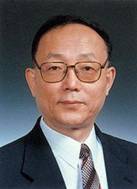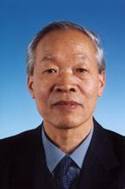
Hou Xun
Born in December 1936 in xianyang, shaanxi, famous optoelectronics expert. The research on the theory and technology of photoelectric cathode, optoelectronic technology and fast photoelectric device has an important influence on the field of transient optics and optoelectronics. In 1985, as the main contributor to the "dynamic optical observation and measurement technology in modern defense experiment", he was awarded the national science and technology progress special award. Hou Xun academician is China's "five-year" climbing "program project:" research on femtosecond laser technology and super fast process "chief scientist, primary items in" climbing "program of the ninth five-year plan:" strong field femtosecond laser physics and ultrafast process research, "one of the experts committee convener. Since 1986, he has won the second prize of national science and technology progress, the third prize and the third prize of national invention. He also won the first prize of the science and technology progress of the Chinese academy of sciences, and the second prize four; Further, he won the second prize of science and technology progress of shaanxi province, the third prize and other major awards. Since 1986, successively in the domestic and foreign journals, he has published more than 190 academic conferences, on the 18th and the 23rd international conference on high-speed photography and Japan's first international high-speed photography, he made a special report at the meeting. Hou xun initiated and organized the "national key laboratory of transient optical technology", which made an important contribution to the research of China's transient optical technology to catch up with the world's advanced level. In 1984, he won the national title of young and middle-aged expert with outstanding contributions, and won the national title of "advanced worker" in 1989. In 1991 he was elected academician of Chinese academy of sciences, and was awarded the first prize for guanghua science and technology fund in 1996, 1999, science and technology progress prize He Liang.

Wang Zhanguo.
Born in December 1938 in zhenping county, henan province, famous semiconductor material physicist. He graduated from the department of physics of nankai university in 1962 and worked in semiconductor institute of the Chinese academy of sciences. From 1980-1983 he was a visiting scholar at lund university, Sweden; In 1986, he was a semiconductor researcher and director of materials. Approved as a doctoral supervisor in 1990; 1990-1994 deputy director of semiconductors; From 1991 to 2001, successively served as the national high technology and new material domain expert committee, standing committee member and functional materials team, state of S - 863 plan outline Suggestions soft research new materials technology team; Replacement from 1990 at the first international semiconductor and half insulating material, the 7th international chemical beam epitaxy, international conference on defect identification and imaging physics such as 6 advisory committee, the Chinese academy of sciences semiconductor materials science laboratory, director of the laboratory of Peking University, tsinghua university, and many other countries, department of academic committee. He is still the member of the 8th Beijing municipal people's government advisory panel, executive director of China institute of materials, senior member of China electronics society, Semiconductor journal, artificial crystal journal, material guide, etc. He was elected as an academician of the Chinese academy of sciences in 1995. "973" major basic research program "information functional materials related basic questions" project lead scientist. He was awarded the first prize for science of Chinese academy of sciences, Chinese academy of scientific and technological progress first, second and third prizes, national science and technology progress third prize and the national key scientific and technological research award. He has published more than 100 papers in academic journals in foreign countries, which were quoted hundreds of times by others.